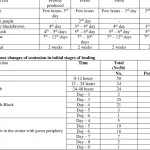You can take ashwagandha at any time, day or night. For instance, many people include it with their morning supplements. Still, it’s generally advisable to take ashwagandha with food to reduce the chance of an upset stomach.
Ashwagandha (Withania somnifera) is a botanical adaptogen that has been used in traditional medicine for millennia.
Adaptogens are plants that help the body manage its physiological reaction to stress. They have been associated with reductions in stress.
With rising interest in natural health options, ashwagandha has become more popular for its purported wellness benefits.
However, some individuals experience stomach upset with ashwagandha, so picking the right time to take it may allow you to gain benefits while minimizing side effects.
This article explores whether taking ashwagandha in the morning or at night is preferable.

What is ashwagandha used for?
Ashwagandha supplements have recently surged in popularity as a natural remedy that may support various aspects of health, including blood sugar control, stress and anxiety reduction, and improved sleep.
People often use ashwagandha for its adaptogenic effects, which are thought to help balance the body’s stress response.
Ashwagandha is commonly sold as tablets, capsules, or powders. It’s also found as oils, creams, and in other cosmetic formulations.
Research on topical forms like oils and creams is limited, and most of the known benefits of ashwagandha are tied to oral supplements rather than skin or hair applications.
When to take ashwagandha
Overall, ashwagandha can be taken at any time. Still, depending on your aims and how well you tolerate it, you might prefer morning or evening dosing.
Taking it in the morning
Unlike many drugs and supplements, ashwagandha’s effects are not immediate. It may take days to weeks before you notice changes.
For example, in a trial involving 60 participants who took 300 mg of ashwagandha daily, it took up to 10 weeks for the full effects on sleep quality to emerge compared with the control group.
As a result, the timing of ashwagandha often comes down to personal preference.
If you’re using ashwagandha as part of a daily supplement regimen for overall wellness, you might choose to take it in the morning along with other vitamins.
That said, taking ashwagandha on an empty stomach can cause mild gastric discomfort for some. You may prefer to take it after breakfast or after a small snack.
Alternatively, you can mix ashwagandha into a smoothie, beverage, or meal.
Taking it at night
If your goal is to support sleep, you might take ashwagandha powder in a cup of moon milk — a soothing blend of antioxidants and adaptogens — before bedtime to help you unwind.
For people who get stomach upset from ashwagandha, taking it at night may be preferable, especially if they usually take supplements on an empty stomach during the day.
The most important consideration is picking a time you’ll reliably stick to and that feels best for you.
Is taking ashwagandha safe?
When used as directed for short durations, ashwagandha is generally regarded as safe for most individuals. However, it may not be appropriate for everyone, and long-term safety data are limited.
Side effects can occur. Excessive doses, typically those beyond the product’s recommended amount, may cause adverse effects, such as:
- stomach upset
- diarrhea
- vomiting
- liver injury
Therefore, follow label directions and consult your healthcare provider before starting ashwagandha or changing doses. Potential risks include:
- Liver injury: Some reports have linked ashwagandha with liver problems, particularly in people taking other medications, such as anxiolytics, or when larger doses are used.
- Thyroid effects: Ashwagandha can influence thyroid activity and may cause hypothyroidism or thyrotoxicosis. A clinician may advise against its use if you have a thyroid disorder or take thyroid meds.
- Sex hormone changes: Ashwagandha may raise testosterone and alter other sex hormones. It could be unsafe if you have hormone-sensitive prostate cancer.
- Pregnancy concerns: It may not be safe during pregnancy or while breastfeeding.
It’s wise to speak with a healthcare professional before using ashwagandha if you’re pregnant, nursing, or taking prescription drugs, including:
- immunosuppressants
- sedatives
- antidepressants
- thyroid medications
The bottom line
Ashwagandha is a widely used adaptogen with several potential health benefits.
Most people take ashwagandha in capsule or powder form, and it can be taken at any time of day.
You might incorporate it into your nighttime routine to support sleep, or taking it in the morning may better fit your schedule.
Because ashwagandha needs time to exert effects, take it when it’s most convenient for you. If you experience stomach upset, consider taking it with food or at night.
Ultimately, the best time to take ashwagandha is whatever time you’ll most consistently use it.
























Leave a Reply
You must be logged in to post a comment.